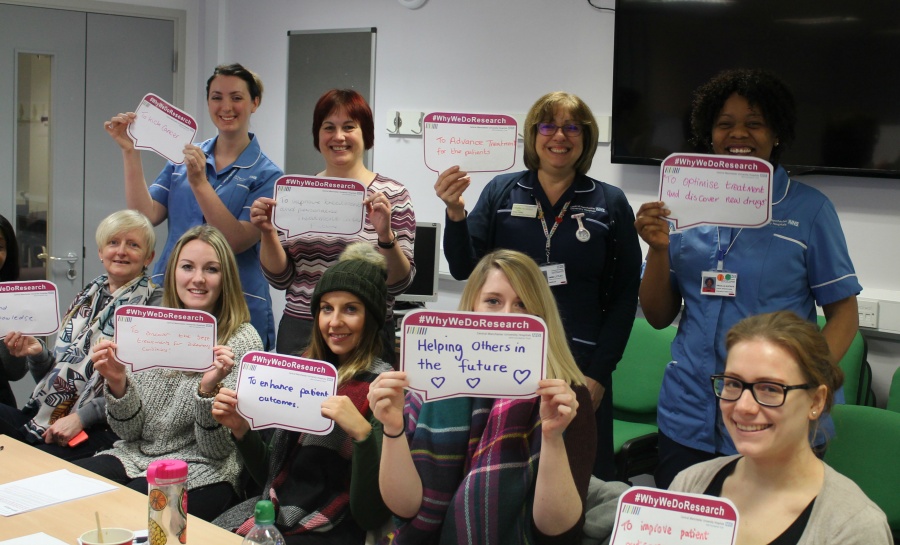Oncology nurses learn impact of clinical research during successful study day
In January, Central Manchester University Hospitals NHS Foundation Trust hosted its quarterly chemotherapy study day for experienced nurses who are learning to administer chemotherapy based in the community and oncology wards.
At each study day, the nurses from Adult and Paediatric Haematology Oncology teams are invited to present a short talk about the research taking place in the departments. The study day was co-ordinated by Alison Grunshaw, Lead Chemotherapy Nurse, and Anne Littley and Rachael Wilding spoke on behalf of the research team about their work.
As nurses on the frontline who have the skills to deliver many of the trial treatments, those present play an essential part in the delivery of clinical research while supporting cancer patients through their treatment.

The session included an overview of the clinical trial process, the different types of trial a new treatment can go through and an explanation of who benefits from research.
The presentation was recently revamped to feature patient case studies and made more interactive by including the national research campaign #whywedoresearch. This enabled chemotherapy nurses to learn about the importance of clinical research in cancer care, drive up enthusiasm for why we do research and learn about the research nurses’ role with examples that they can relate to in their current clinical practice.
Anne Littley in Paediatric Oncology introduced a case study about a child with neuroblastoma which demonstrated to the nurses a child’s journey through various phases of clinical trials. This set the scene for Bill’s heart-warming story and the reasons he decided to go onto trial. Bill was diagnosed with Acute Myeloid Leukaemia just months after losing his wife. He decided to participate in a research study and is now in remission, and encourages others to take part in research. This powerful story showed the impact that research can have on patients’ lives.

The session was well received with some excellent #whywedoresearch speech bubbles, including to save patient lives, provide more options for treatments and improve care in the future.
Rachael Wilding, Oncology Clinical Research Nurse, who spoke at the study day, said:
It is greatly important that the research nurses have excellent links with all chemotherapy nurses. As research nurses it is sometimes difficult to fully explain our very varied role to other clinical colleagues. Working together as a team will only improve patient care in both departments. We were delighted by the response which demonstrated the enthusiasm of all chemotherapy nurses to caring for patients and helping research new treatments which could benefit them in future.




